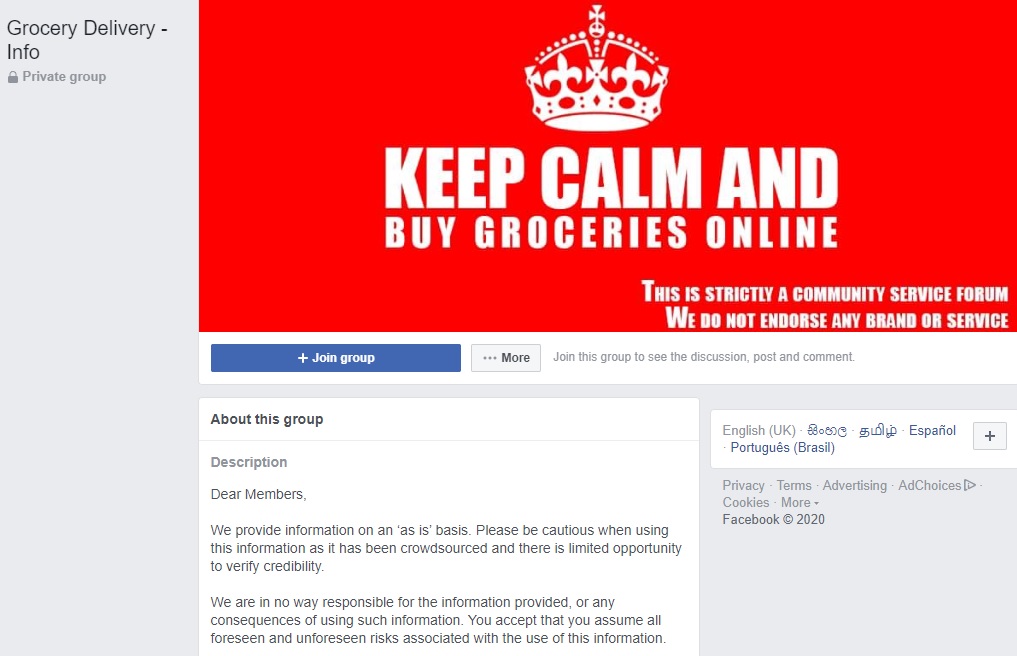Though Sri Lanka’s Consumer protection laws might be well established, the average Sri Lankan is not much inclined to take on a fight when dealt with a poor bargain. Us islanders may even be considered complacent if one takes into account our track record in handling unfair practices where goods and services are concerned.
Up until now, consumer resistance groups had little teeth to follow through when traders didn’t deliver on a promise. But that has all changed with the lockdown; today, several urban groups are evaluating and examining products, services, quality, and pricing, while using the power of social media to blackball errant suppliers.
No longer is it possible for marketers to have huge disparities in the pricing of their products without getting shown up. The lockdown has brought everyone to a single platform, with suppliers having to advertise their wares on social media and page administrators of consumer groups insisting on clear descriptions of products and their pricing. This by default has created an entire portal for evaluation. “In the past, when you went to a supermarket there was no way you could compare prices with another supermarket or outlet. We did not try to because no one had the time nor desire to do that. We just took the products and prices at their face value,” says one concerned shopper.
Today, with social media groups like Grocery Delivery Info, Home Deliveries, Sri Lanka Consumer Hub, etc., insisting on transparency, urban communities have the opportunity to compare quality of products and contrasting prices. Errant suppliers are being shown up and consumer groups are now building resistance towards them, not fearing to post derogatory comments if things go wrong.
Examples
Besides online shopping, there are the door-to-door salesmen who are giving good deals. Twice now, we were lucky enough to have a fish vendor in a tuk-tuk carrying all kinds of fresh fish, including blue sea crabs. Both times we bought crabs for Rs. 600/- a kilo and they were fleshy, juicy, and fresh. We normally buy them from Fresh fish, on duplication road for approx. Rs. 1,400/- - 1,600/- a kg. The same goes for veggies, I don’t know if it’s because of the plentiful harvest this season, but I have never paid less for fresh vegetables as now and all delivered to my doorstep.
Now for the more exotic stuff. Whilst supermarkets could not come up to scratch with cheeses, chocolates, coffee, spreads and jams, nut milks, cold cuts, specialty oils, and more, there are several online stores that provide this service and some I must say offer better pricing than supermarkets in the past. The variety they offer is also much more than even supermarkets like Glomark and Spar. While online stores like Wishque.lk and Kapruka are known to charge exorbitant rates, there are online stores like Luxecolombo, Realtimefoods, the Australian store, Organic guru, and UK minimart etc., who offer a range of really good products at acceptable market rates.
Post Lockdown
As this kind of knowledge becomes easily accessible to more of Colombo’s urban populace, the supermarkets, and other large outlets would have to watch out for a change in the way people buy, post the lockdown. With all predictions pointing towards bad times ahead owing to job losses, economic downturn, and people having more time on their hands, bargains may well become more attractive. Water seeks its own level, therefore those who do not care about bargains and price will remain while those who do will act on the recent knowledge they are armed with. But what is likely to be certain, is a greater level of consumer resistance in the future. As social media groups become more active and people become aware of poor deals and gain knowledge on where to look for better ones, they would not hesitate to blackball marketers who are only out to make an easy buck.
Dilki Wijesuriya



